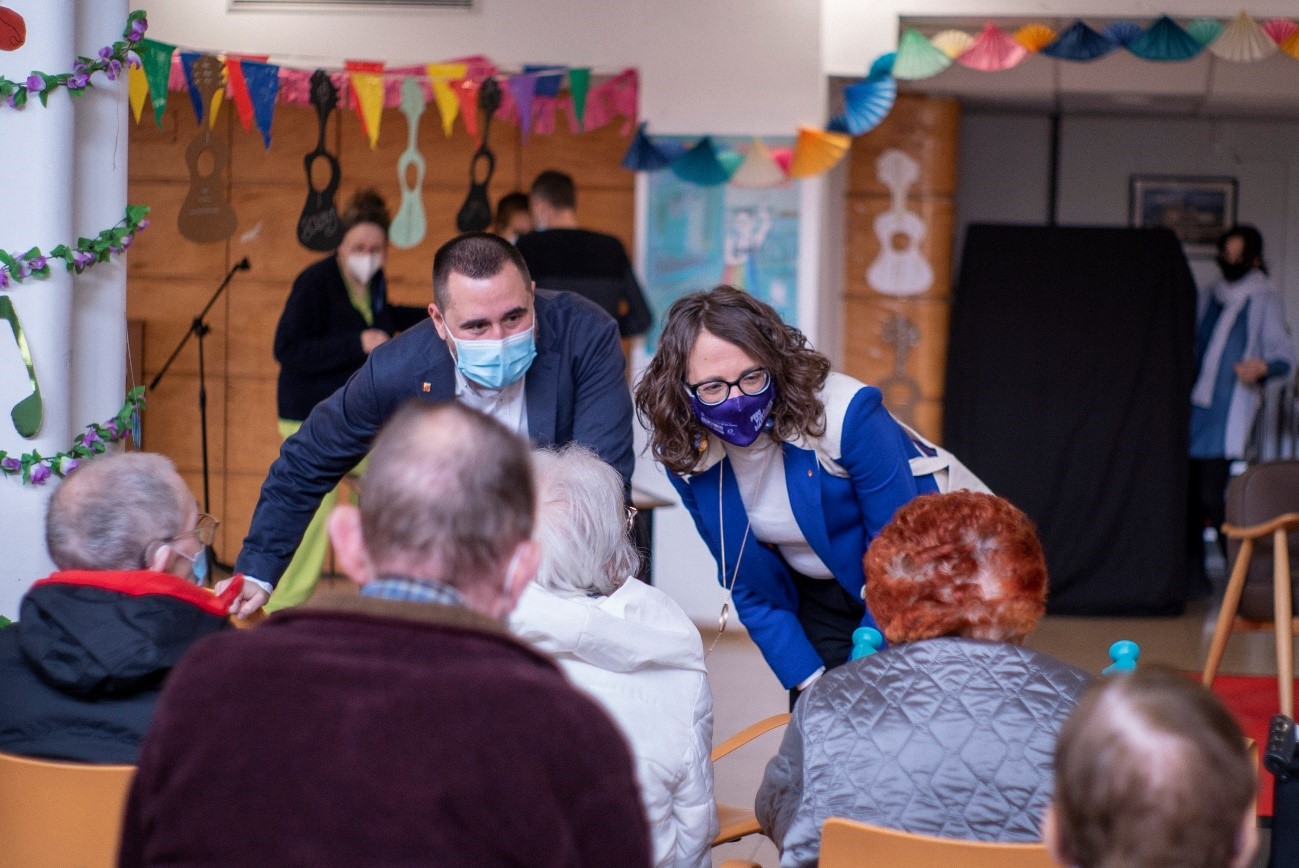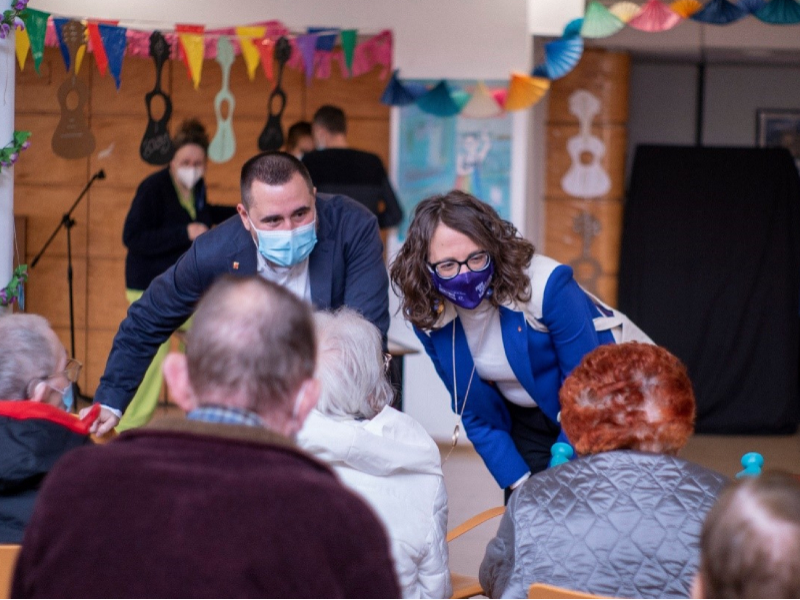The aim is to provide professional teams with tools to manage LGBTI+ diversity, as well as to prevent and act against LGBTI-phobia

The Minister of Equality and Feminisms, Tània Verge Mestre, presented the “Practical guide for incorporating the LGBTI+ perspective in care homes and other centres and resources for the elderly” at a Barcelona care home. The guide aims to incorporate the LGBTI+ perspective in all care homes and other centres and resources for the elderly in Catalonia, to endow the people who work there with the tools to manage this type of diversity, as well as to prevent any case of LGBTI-phobia or to take action in the event of it occurring.
“The guide must guarantee LGBTI+ senior citizens the right to be fully free to express their sexual orientation and gender identity”, said Verge. “Their experience as users of the services dedicated to their care and support should in no case entail their return to the closet that their generations worked so hard to break out of”, added the Minister of Equality and Feminisms, referring to the persecution and difficulties suffered by those born in the 1940s, 1950s and 1960s in openly living their gender identity and/or sexual orientation. LGBTI+ people were treated as social pariah and suffered persecution, and it was not until 1979 that Spanish Law 16/1970, of 4 August, on dangerousness and social rehabilitation, which considered homosexuality a crime, was repealed.
The guide is geared primarily to management teams and technical and professional staff in care homes for the elderly (both public, subsidised and private), in social and health care centres, day centres and employers’ associations dedicated to services for the elderly. It is also addressed to those who work directly or indirectly with the elderly, from hospitals to primary care centres, libraries, community centres and social rights associations and organisations.
“Individuals’ right to be who they want to be, regardless of their sexual orientation or gender identity or expression, must be guaranteed throughout their entire life, and this also includes old age”, Verge added. In this regard, the guide offers indications on how to mainstream the LGBTI+ perspective in the service and to guarantee safe spaces for older people in which they can express themselves freely without fear of rejection.
For example, when an elderly person enters a care centre or care service, it should not be assumed that he or she is heterosexual or cisgender. It is important that the team of professionals at the centre have a basic knowledge of the LGBTI+ reality, treat all elderly people with respect, regardless of their sexual orientation and/or gender identity or expression, understand how to detect possible cases of LGBTI-phobia and eradicate these from the outset. These professionals also need to be proactive in including LGBTI+ senior citizens in the day-to-day life of the centre, and ensure that they perceive the centre as a safe space that respects their life stories, where they can continue to develop and grow as truly free individuals.
The guide is the result of the initiative of the working group for the elderly of the National Council of Lesbians, Gays, Bisexuals, Transgender and Intersex People of Catalonia. The task carried out by this working group, as well as its experience, background and knowledge, have been key in defining the contents of this guide, in collaboration with the Directorate General for LGBTI+ Public Policies of the Ministry of Equality and Feminisms and the Directorate General for Personal Autonomy and Disability of the Ministry of Social Rights.
Safe space for LGBTI+ senior citizens seal
The Government of Catalonia may grant, through the implementation of specific regulations, a seal indicating that the centre is a safe space, so that older LGBTI+ people can easily locate those centres that ensure their rights are guaranteed.
The awarding of this seal will be based on the main indicators extracted from this guide, which can be summarised in these points:
- Incorporate into the welcome protocol specific elements for managing the reception of LGBTI+ individuals, including having information materials available (leaflets, posters, etc.) which specify how the centre guarantees respect for the diversity of sexual orientations and gender identities. Include in the rules of coexistence the duty to respect LGBTI+ people.
- Adapt internal forms and regulations to LGBTI+ diversity and use inclusive language in all documents produced by the centre.
- Carry out awareness-raising actions and continuous training of professional teams.
- Have an LGBTI+ contact person.
- Organise leisure and entertainment activities about the LGBTI+ reality, such as workshops and recreational activities, talks or LGBTI-themed film screenings.
- Have a specific protocol in place for intervention in cases of harassment due to LGBTI-phobia, including reporting mechanisms.
- Respect the option of LGBTI+ couples to share a room to ensure their privacy.
- Ensure that trans* people are able to maintain their gender identity, including access to hormone treatments.
- Adapt shared bathrooms for non-binary people.
The guide reminds the reader that when in doubt about how to deal with any discriminatory act, they can directly contact the Integrated Care Service (SAI) closest to the care centre to explain the case and ask for advice on the best way to deal with it. In addition, the document debunks a number of false stereotypes related to LGBTI+ senior citizens, and includes a glossary of LGBTI+ terms.
This guide implements articles 17.4 and 17.5 of Law 11/2014 of 10 October which guarantees the rights of lesbian, gay, bisexual, transgender and intersex individuals and to eradicate homophobia, biphobia and transphobia.


